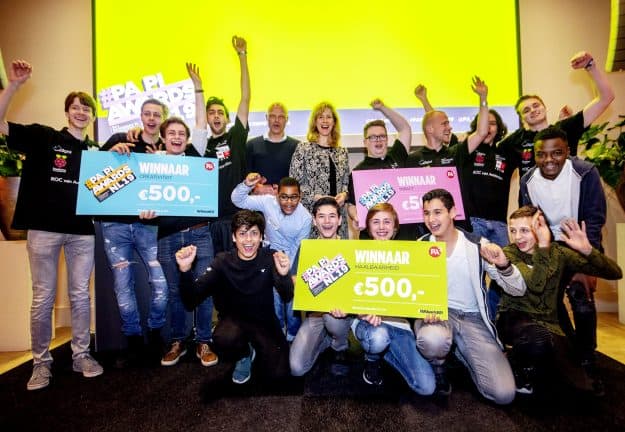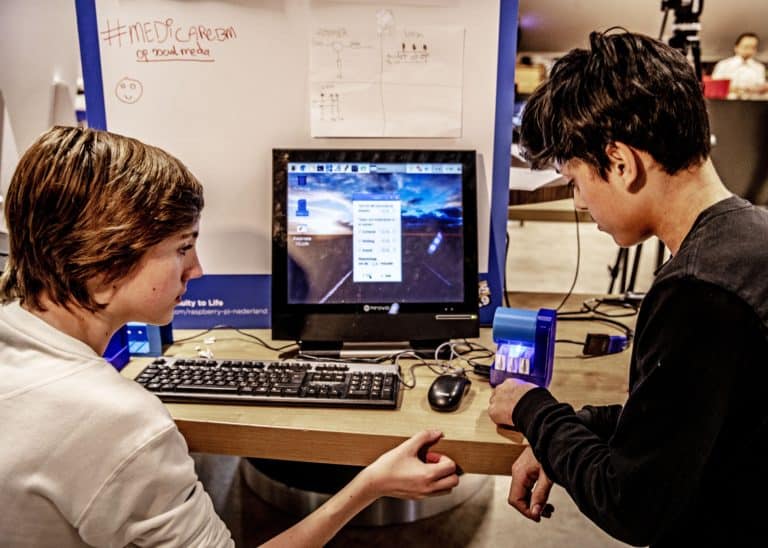During last week’s final in the Johan Cruijff Arena of the first Dutch Raspberry Pi-competition, four student teams managed to win a cash prize. The competition was organised by the IT specialists of PA Consulting and House of Digital.
With the Raspberry Pi Competition, the initiators want to encourage students from pre-vocational secondary vocational education (VMBO), higher vocational education (HAVO) and higher vocational education (MBO) to do more with technology and, of course, with IT, following the British example. The competition consists of a competition to use the smart and inexpensive minicomputer Raspberry Pi to make an invention that can improve the well-being of people.
The organisers also want to encourage students to approach certain multidisciplinary issues and to work together. This should ultimately inspire them to continue with technology.
Most feasible solution
In concrete terms, the various school teams competed in four categories. A total of 14 entries were judged. The prize for the most feasible solution eventually went to the Bredeo Mavo in Amsterdam for Medicare. This is a medicine carousel that helps the elderly to take medicines in time.
Caregivers fill this pill box once a week and indicate the times at which pills should be taken. The developed carousel relieves the carers and is a tool to always take medication on time, according to the youthful makers.
Most creative application
The award for the most creative solution went to the smart plant Dionaea from MBO College Amstelland in Amstelveen. This plant grows almost without human interference. By throwing fish food into an aquarium, various processes and sensors ensure that the plant continues to grow well on top of it. According to the inventors, this mainly helps people who, due to illness, old age or absence, are unable to take care of plants, but would like to have greenery in their homes.

Most valuable impact
The prize for the most valuable impact went to the Pi-Care concept of MBO College Zuidoost in Amsterdam. In order to do this, the pupils first made an inventory of the challenges they face at care institutions and what can be done to relieve them. The result was the Pi-care ecosystem, in which clients can see the daily activities on the programme via the Pi-Bear, Pi-Watch and Pi-Hub by means of recognisable icons. This will replace a paper diary. In a simple system for administrators and clients, everything else is synchronised, so that everyone is well informed about the activities.
The incentive prize went finally to the youngest participating team average age 12.5 years of again the Bredero Mavo from Amsterdam. They presented an application that uses various sensors to warn when in a warm car it becomes critical for any pets that might be left behind.
Praise of the State Secretary
The organisation and the participating teams also received a great deal of praise from the State Secretary for Economic Affairs and Climate, Mona Keijzer, who was present. In her opinion, technical skills will become indispensable in the future and it is therefore important that students develop these skills at an early stage.
The competition was so successful that the organizers decided to reorganize the Raspberry Pi Competition for the school year 2019/2020.
This news article was automatically translated from Dutch to give Techzine.eu a head start. All news articles after September 1, 2019 are written in native English and NOT translated. All our background stories are written in native English as well. For more information read our launch article.